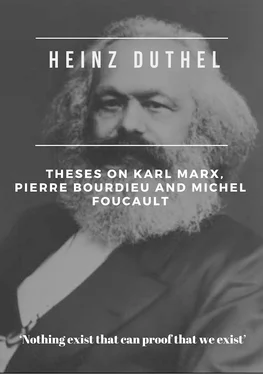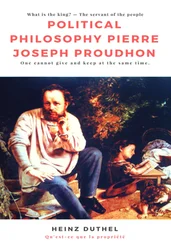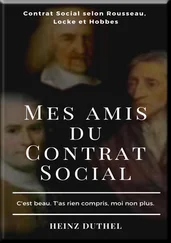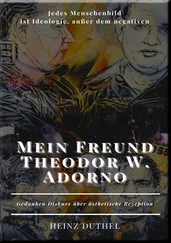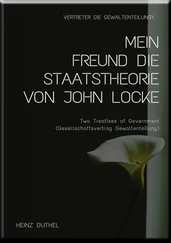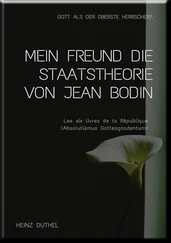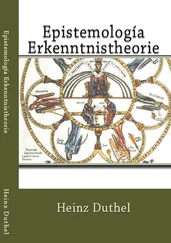One of the advantages of educational change is the possibility of consequent tensions that would bring to the surface some of the more unconscious elements of our practice. The new Head of Department was appointed early in the first stage of my literature study and I was informed by various people that he was considerably different in outlook from the incumbent. It seemed too good an opportunity to miss.
Given that I wanted to get to know much about how teachers organised their intellectual engagement with their work, it seemed important that the data I collected focused largely on teachers, their views and their practices. This firmly suggested that interviews and classroom observation would be the main research tools. Analysing the data took me back to the theoretical perspectives to try to characterise the ways in which local contributions are connected to social life. Hence the data collection and analysis, and the empirical and theoretical modeling, were carried out iteratively and inferentially. While Chapters 2, 3 and 4 lay the groundwork for the theoretical ideas I used in designing the study, the particular structural model was informed by the study being an inductive empirical struggle to construct a descriptive model underpinning two teachers’ professional discourse. The empirical construction of this model is described in Chapters 7, 8 and 9 and evaluated in Chapter 10.
I have already described the theoretical assumptions on which this Study is based. I wanted furthermore to develop a language to describe and analyse the complexity of the social world of the classroom and teachers’ predilections toward classroom practice, classroom organisation and the structure of tasks and curriculum choice. Pierre Bourdieu offered me a way through the subjectivity/objectivity issue in educational research as well as a tool for analysis in the habitus. Michel Foucault offered me a challenging perspective on the formation of discourse and a fresh perspective on power – but one with which I felt a little uncomfortable. By exploring this unease, I was able to identify certain distinctive features of the approach to discourse and power I needed. Antonio Gramsci helped me to understand the way in which I could apply Bourdieu and Foucault to a study of capitalism through hegemony and ‘common sense’. I attended a Symposium on Bourdieu and Educational Research at the BERA Conference in 1996, and joined both the Bourdieu and Foucault email discussion lists all of which helped me to grapple with theoretical and methodological issues.
I see this Study as located within the shift away from the purely psychological paradigm in which much mathematics education research is located, towards a social or cultural paradigm. This is not merely a change in focus, or a shift of academic fashion, but reflects both a change in the way we understand the working of the self, and in changes in the social fabric itself. As society incorporates faster and more all encompassing forms of communication – or ‘social saturation’ we do become more ‘social’ in our thinking. Thus the current resurgence in interests and activity in Vygotskian perspectives is no accident [Gulerce, 1995 #576, p 152].
1.2.6 The personal context
I have to admit that some of the driving force behind this work comes from my own anger and frustrations, and my own passions. I am not apologising for feeling about my research; I will go further and claim that passion is centrally important to my research. An ethnographer “must not suppress a sense of outrage whilst in the field” (Erikson, quoted in [Adelman, 1985 #507, p 45]. Rather this sense of outrage should be used to advantage as an illustration of how some aspects of a social practice or culture are unacceptable or undesirable and thereby illustrate social and cultural difference. In rejecting ‘objectivity’, Clem Adelman calls this approach “disciplined subjectivity” [Adelman, 1985 #507, p 45] and this is something with which I feel considerable empathy.
There is a question of for whom – and what - this Study is written. It well argued that teachers find much educational research irrelevant and consequently they play little part in it [Woods, 1986 #607, p 1]. The reasons include: the research questions not being defined by teachers; the language not being the language of teachers; the link between research and practice being weak. There is undoubtedly some truth here, but none of these would seem to me to be insurmountable by a research community committed to educational change.
There is an alternative rationale for why research and practice seem to be disconnected. Schools are conservative institutions. They are both slow to change, and unwilling to change. They are however part of a wider set of social institutions and have limited autonomy. The considerable research on pupil subcultures and labeling would seem to offer very real challenges to schools, yet ability grouping and pupil segregation not only still go on – but are being more positively encouraged. I was recently asked by a student teacher why it was that all the maths educators and educational research he had come across seemed to be from within at a liberal tradition – and this I think is a serous question. I like to think that research is fundamentally an enquiry about how to understand the world in order to improve matters. Hence, it is fundamentally emancipatory. This is not the message that schools want to hear since it challenges the dominant hegemony of the educational system – which is constructed not by educational researchers, but by politicians, media tycoons, and so on. Hence, research findings would seem to challenge sacred cows and the hegemonic control of education. I am not suggesting the process simple, for it is not, I merely want to suggest that one reason why research and practice are often in conflict is political. Yet, just wherein lies the political?
The ubiquitous quote from Karl Marx about the importance of change over interpretation identifies a need for a socialist to look for ways to bring about change rather than merely interpret the world. I unashamedly claim that in this Study I am trying to understand better the micro-mechanisms of relations of domination and their legitimisation. This Study itself is not a manifesto for change – although I close with some implications for the future. In order to bring about change, we need to understand better the mechanisms that keep us moving in the ways we go. This Study is therefore not a description of a journey, it is rather an attempt to describe and understand the way “mathematics education plays its part in keeping the powerless in their place and the strong in positions of power” [Gates, 1997 #509, p 3].
One of the difficulties of trying to pin down complex sociological concepts is the interconnectedness that arises out of this complexity. It is not easy to organise a Study such that it expresses a neat progression from one idea to the next as might be implied in a piece of writing where one chapter follows another. So this isn’t a linear Study, neither is it one that can chart my own progression through a research biography. However, in writing a Ph.D. Study – as with any such writing – there has to be a linear structure for the reader to follow. Unfortunately, this linearity may give a false impression of the process behind the research. Far from linear, this Study, and the work reported in it was more of an iterative process, where new reading and reflection on empirical data introduced new ideas and organisation. This is particularly true of my process of struggle to construct and refine an empirical model.
Are there different voices in this Study? Naturally, I want my voice to come through, but what of the voice of the participants in the research? Whilst I have a strong desire to work for the greater emancipation of the powerless, I also see the need to engage with different discourses. Often the discourse of emancipation and voice foregrounds the involvement of the participants. Patti Lather gives a good example of this approach [Lather, 1991 #78, see especially pages 41 – 49]. Yet it is her adherence to certain postmodernist approaches that seems to limit her view of what role a researcher might play in working toward greater emancipation. For her, the post-modern “raises questions about vanguard politics and the limits of consciousness raising … and the efforts of intellectuals to inspire the aspects of liberatory politics most problematised by postmodernism” [Lather, 1991 #78, p 4]. While I agree with her use of ‘empowerment’ as “analysing ideas about the causes of powerlessness, recognising systematic oppressive forces, and acting both individually and collectively to change the conditions of our lives” [Lather, 1991 #78, p 4], and made use of her suggestions for organising reciprocity in research [Lather, 1991 #78, p 60 – 61], I do not accept her conclusion that this implies that “empowerment is a process one undertakes for oneself” (p 4). I am in no way antagonistic to this claim – and see it as an essential element in fighting an oppressive system. I would not want however to discount ‘vanguardism’ as an essential part of that process. The existence of a ‘vanguard’ or “transformative intellectual” [Aronowitz, 1985 #636] is at times a necessary element in transforming society. It is over-simplistic, and if I may be so bold as to say somewhat liberal, to suggest that “who speaks is more important than what is said” [Lather, 1991 #78, p 47]. It is also dangerous and potentially sterile to separate the two. What radicals need to do is to bring the two together within a theoretical orientation that can deconstruct the underlying intentions and power relations – something that Vladimir Lenin recognised some 90 years ago. It is not enough to give voice to the oppressed, nor is it enough to be a critical transformative intellectual. We must do both by being “cultural workers taking away barriers that prevent people from speaking for themselves” [Apple, 1991 #658, p ix]. One of the dangers of undertaking research to liberate the powerless, is that it might be theoretically blind, impotent, lacking in both an understanding of root causes for oppression and strategies for change. In so doing, we must move on from such liberal notions that see the individual as made potentially powerful by being engaged by researchers in their work. Patti Lather gives an example here where “researchers with emancipatory aspirations, doing empirical work offers a powerful opportunity for praxis to the extent that it enables people to change by encouraging self-reflection and a deeper understanding of their particular situation” [Lather, 1991 #78, p 56]. Though I deeply wish it were otherwise, I do not see self-reflection or a deeper understanding of the situation as anywhere near sufficient to bring about real social change. This position explains the place that the teachers have in my Study.
Читать дальше
